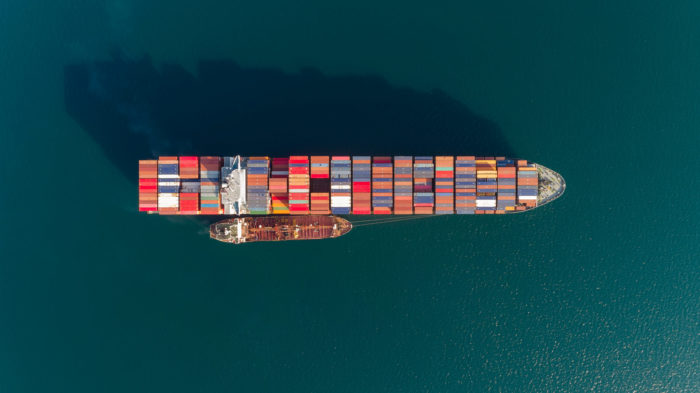Shipping line vessel fuel efficiency
In this article, the variables affecting vessel fuel economy, the significance of increasing it, and the numerous methods used by shipping corporations to improve their fuel efficiency will all be covered.
The fuel economy of shipping line vessels is a crucial factor in the marine sector with wide-ranging effects. Technology advancements, operating procedures, fuel quality, and vessel design all have an impact on it. Enhancing fuel economy results in economic savings lessening the effect on the environment, and assures adherence to strict laws. To increase efficiency, shipping corporations use techniques including route planning, hull cleaning, fuel management systems, and alternative fuels. Enhancing fuel economy will be a major objective as the marine industry develops in order to achieve economic and environmental sustainability in the global shipping sector.
Fuel efficiency of shipping line vessels is a crucial part of the marine sector, having significant consequences for the sustainability of the economy and the environment.
Several important aspects have a major role in determining how efficiently ships use fuel:
Vessel Design: A ship’s design is a major factor in determining how efficiently it uses fuel. The vessel’s hydrodynamics and water resistance are impacted by factors such as hull design, size, and weight distribution, which have an effect on fuel consumption.
Engine Technology: A ship’s engine efficiency and type have a big impact on how much fuel it uses. Modern engines are made to use less fuel and to be more ecologically friendly, which lowers pollutants.
Operational Procedures: A vessel’s operational procedures may have a significant influence on its fuel economy. Fuel usage is influenced by things including speed, route planning, and maintenance procedures.
Gasoline Quality: The kind of gasoline used may have an impact on how well an engine performs. Fuels of lower grade could result in higher carbon buildup and more frequent maintenance requirements.
Technological innovations allow shipping businesses to optimize routes and increase fuel economy. Examples of these innovations include the use of data analytics, artificial intelligence, and fuel monitoring systems.
For a number of reasons, increasing vessel fuel economy is essential.
Savings: One of the biggest operating costs for shipping businesses is fuel. They may save operating expenses and boost profitability by increasing fuel economy.
Environmental Impact: Global greenhouse gas emissions are significantly increased by shipping. Enhancing fuel economy contributes to lowering carbon emissions, which lessens the industry’s environmental effects.
Regulatory Compliance: Shipping businesses must implement cleaner and more effective technology to comply with strict environmental rules, such as the International Maritime Organization’s (IMO) sulfur emissions restrictions.
Various tactics are used by shipping corporations to increase vessel fuel efficiency:
Optimized Speed: Fuel efficiency is often higher at lower speeds. Many businesses use “slow steaming” techniques to save on fuel use.
Route optimization: Ships can cruise more fuel-efficient routes, avoid bad weather, and improve their voyage with the aid of cutting-edge weather forecasting and route planning technology.
Hull Cleaning: Keeping a ship’s hull clean and properly maintained can help it run more efficiently by reducing drag and enhancing hydrodynamics.
Fuel management systems: Companies may spot opportunities for improvement by tracking and optimizing fuel use using cutting-edge systems and technology.
Alternative Fuels: Investigating alternative fuels like hydrogen and LNG may cut carbon emissions and increase fuel efficiency.


